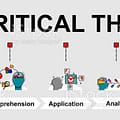According to Gallup, 70% of the variance in team engagement also lies with the manager.
Yet so often managers and aspiring managers are not prepared for the job. You need more support.
As an individual contributor you have clearly proven that you have the skills to move up the career ladder, but management requires a completely new skill that will take quite some time to master.
It’s generally regarded as the toughest professional transition one makes in the course of their career – and even the most experienced managers at senior level struggle at times.
The journey can be exciting and terrifying at the same time.
To successfully navigate the transition and acquire a new set of skills requires a change in the way you view your work and yourself as a professional.
You need to understand that this transition is time taking and many of the things that helped you get promoted in the first place will stand in your way now.
You need to let go of them and make a shift in the way you think , speak and act.
According to Sidney Fuchs, President and CEO at MacAulay-Brown, Inc. “moving from an individual contributor…to a management position is not just a step up the corporate ladder, but a jump to an entirely new ladder in terms of skills, motivations, perspectives, responsibilities, and impact to the organization.”
Michael D. Watkins, author of The First Ninety Days, says that promotion to a leadership role requires “relationship re-engineering.” This means that a new manager has to reassess and recalibrate how she interacts with everyone in the organisation to be successful.
To help you through this journey, I have prepared this post around 3 key question –
-
Why is it important to shift the mindset from an individual contributor to a team leader?
-
10 Key Differences between the mindset of an individual contributor and manager
-
How to transition from an Individual contributor to a manager
Are you ready to be a manager?
If you are nodding yes then dive in now !
Would you like to Make A SMOOTH TRANSITION AND THRIVE CONFIDENTLY in your New Role ?
Get the FREE NEW MANAGERS GUIDE TO THRIVE CONFIDENTLY HERE

WHY SHIFTING THE MINDSET FROM INDIVIDUAL CONTRIBUTOR TO MANAGER IS IMPORTANT FOR NEW MANAGERS
Shifting the mindset from individual contributor to manager is crucial for new managers for several reasons.
First and foremost, transitioning from an individual contributor role involves a significant change in responsibilities.
As a manager, the focus shifts from solely accomplishing personal tasks to guiding, mentoring, and overseeing the work of a team.
New managers must embrace these changes in order to foster a collaborative work environment.
By displaying effective leadership skills and prioritising the success of their team over personal accomplishments, managers can build trust and create a culture that values cooperation and shared ownership.
Another reason for shifting the mindset is that managers take on more strategic responsibilities within an organisation.
In addition to tactical day-to-day tasks, they must develop long-term plans and goals that align with their company’s mission and vision.
This requires looking beyond individual contributions and adopting a broader perspective on what it takes to achieve organisational success.
Additionally, adopting a managerial mindset helps new managers develop essential soft skills such as communication, empathy, and active listening.
These skills enable them to better understand the needs and motivations of their team members.
By doing so, new managers can support employees in overcoming challenges, developing professionally, and boosting productivity.
Lastly, transitioning from an individual contributor role requires new managers to learn how to delegate effectively.
In order to prioritise strategic initiatives, they must entrust daily tasks to their team members.
Effective delegation not only frees up valuable time for higher-level responsibilities but also promotes employee growth by providing opportunities for development and autonomy.
In conclusion, shifting the mindset from individual contributor to manager is crucial for new managers as it involves embracing new responsibilities, focusing on team success, developing strategic thinking skills, enhancing soft skills such as communication and empathy, and learning effective delegation techniques.
Embracing these changes will help new managers lead successful teams and contribute to the overall success of their organisation.
Now a question may arise ,asto what are the differences between the mindset of an individual contributor and a Manager ?
Let me shed some light on that now .
10 KEY DIFFERENCES BETWEEN THE MINDSET OF AN INDIVIDUAL CONTRIBUTOR AND A MANAGER
Here are the 10 key differences between the mindset of an individual contributor and a Manager:
-
Focus: An individual contributor focuses on their own tasks and responsibilities, while a team leader concentrates on the bigger picture and overall success of the team.
-
Decision-making: Individual contributors make decisions based on their own knowledge and experience, while team leaders consider the implications of their decisions on the entire team.
-
Empowerment: Individual contributors rely on their own skills and resources, whereas team leaders empower and support their team members to reach their full potential.
-
Collaboration: Individual contributors work independently or with limited collaboration, while team leaders actively promote communication and teamwork to achieve common goals.
-
Responsibility: An individual contributor takes ownership only for their tasks, while a team leader is accountable for the performance, success, and development of the entire team.
-
Delegation: Team leaders delegate tasks to their team members and ensure they have the necessary resources to complete them, while individual contributors focus on accomplishing the tasks assigned to them.
-
Conflict resolution: Individual contributors manage conflicts as they arise in their personal scope of work, whereas team leaders proactively address conflicts that may affect the entire team’s dynamics and performance.
-
Feedback: An individual contributor receives feedback from peers or a supervisor for self-improvement, while a team leader provides constructive feedback to all members for collective growth.
-
Vision: Individual contributors concentrate on short-term goals and immediate results, while team leaders develop a long-term vision for the team’s future direction and success.
-
Adaptability: Team leaders respond to changes in processes or objectives by readjusting priorities and strategies; it is essential for them to adapt to external factors easily. In contrast, individual contributors adapt primarily within their realm of responsibilities without affecting others.
Understanding these differences can help you transition from an individual contributor role to effectively leading a team or engaging with your team leaders more effectively.
What do you think needs to be changed ?
And now to the final piece of the post, how new managers can shift from an individual contributor to a manager!
HOW NEW MANAGERS CAN SHIFT THEIR MINDSET FROM INDIVIDUAL CONTRIBUTOR TO A MANAGER
“Once your mindset changes, everything on the outside will change along with it.”
-Steve Maraboli, Life, the Truth, and Being Free
Here are 10 ways New Managers Can Shift Their Mindset from Individual Contributor to a Manager.
-
Embrace the transition: Accept that your role and responsibilities are changing. As a new manager, you will need to focus more on delegation, collaboration, and people management than on individual tasks.
-
Develop leadership skills: Focus on improving your communication, problem-solving, decision-making, and team management skills. These are fundamental for any successful manager.
-
Set clear goals and expectations: Define clear objectives and expectations for your team members, and communicate them effectively. This will help align everyone’s efforts towards a common goal.
-
Learn to delegate: As a manager, it’s essential to trust your team members and delegate tasks effectively. Assign responsibilities based on each person’s strengths and capabilities.
-
Foster teamwork: Encourage collaboration within the team by creating a supportive environment where everyone feels comfortable sharing their opinions and ideas.
-
Provide feedback and coaching: Providing constructive feedback is crucial for the growth of your team members. Be open to giving and receiving feedback regularly to help your team grow and develop.
-
Emphasise professional development: Encourage continuous learning among your team by setting development goals and providing resources such as trainings or mentorship opportunities.
-
Focus on big-picture thinking: As a manager, you need to pay attention to the overall direction of your department as well as the organisation’s objectives and strategic goals.
-
Embrace change: Change is inevitable in any work environment; adaptability is key for managers to cope with change effectively and lead their team through uncertain times.
-
Build relationships with other managers: Connect with other managers in different departments or levels of the organisation. This network can provide guidance, support, or collaboration opportunities that can contribute to your success as a new manager.
Follow these ten steps to shift your mindset from an individual contributor to a successful new manager who fosters growth, support, and collaboration within their team.
Do You Want to Accelerate Your Success As A New Manager?
Make a Smooth Transition. Thrive Confidently. Create A Better Impact.
Schedule a 30 Min FREE DISCOVERY SESSION HERE
CONCLUSION
Your role as manager is arguably the most important role in the organisation.
You are here to lead others ,which is quite a lot of responsibility.
Think deeply about it.
Everyday, you impact many lives by what you do and the way you do it.
Directly you affect those in your charge and indirectly you affect their families and friends by affecting their moods and energy levels with your attitude and behaviour.
Managing others can be a significant change from being an individual contributor.
What made you successful as an individual contributor may not help you as a manager.
You must unlearn some previously helpful skills and develop a manager’s mindset.
Hope the post has helped you to become aware of why and how to shift your mindset from an individual contributor to a team leader.
If you need help with any of the areas mentioned above ,email me your queries at -hrleadwithpassion@gmail.com
Babita Sharma
Leadership Coach
www.leadwithpassion.co.in
P.S-Please share the post and help someone today !







